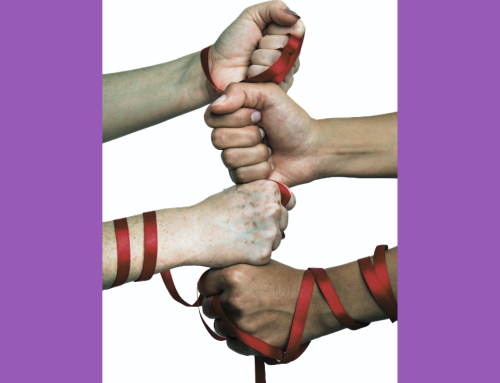 College students nationwide have returned to campus recently and they are experiencing a whirlwind of new activities, ranging from late-night study sessions to newfound friendships. For many young women, this stage of life also marks the beginning of their journey into adulthood, where they must make important decisions about their health and well-being.
College students nationwide have returned to campus recently and they are experiencing a whirlwind of new activities, ranging from late-night study sessions to newfound friendships. For many young women, this stage of life also marks the beginning of their journey into adulthood, where they must make important decisions about their health and well-being.
Survey Says
One key decision women in college often make involves contraception, a subject that is seldom discussed and often misunderstood. In fact, a recent survey of more than 2,000 women in the United States, aged 18 to 55, shows substantial gaps in literacy related to reproductive health.
For example, some results of the Reproductive Health Survey, conducted in 2023 by Flo Health, show:
- Almost 20 percent of the women surveyed report that they turn to YouTube, online forums, or social media to gather information about reproductive health.
- More than 60 percent of women surveyed, aged 18 to 24, say they learned more about women’s health from social media than they did in school.
- More than 50 percent of all women surveyed say they are unaware of how many days a month they are fertile, and that figure increases to 61 percent among women aged 18 to 24.
- Almost one in five women (16 percent) say that they don’t understand how sexually transmitted infections are acquired.
Cause and Effect
These trends are concerning but not necessarily surprising, as there may be several factors contributing to this low contraceptive literacy among college students, including:
- Inadequate Education about Reproductive Health: Many students come from parts of the country where comprehensive reproductive health education is not a standard part of the curriculum. This lack of formal education can leave them ill-prepared to make informed decisions about contraception.
- Stigma and Taboos: At times, cultural or societal stigmas surrounding sex and contraception can deter students from seeking accurate information or asking questions.
- Peer Influence: College students often rely on their peers for information and advice, which can perpetuate myths and misconceptions about birth control. Peer-based information may not always be accurate or up-to-date.
- Internet Misinformation: The internet is a double-edged sword. While it provides a wealth of information, it also hosts a plethora of inaccurate and misleading content about contraception. In the wake of Roe v. Wade being overturned, a tremendous amount of disinformation about reproductive health has appeared on social media, with TikTok being a prime culprit. Given the way TikTok’s algorithms seem to reward web traffic over truth, it’s not surprising that the more sensational and unsubstantiated claims dominate and that students may struggle to distinguish between the credible and crackpot sources they see there.
While women acknowledge that they seek information among the less credible information sources, also hosted by Instagram, Twitter or X, Facebook, and YouTube, they do also say that they want to educate themselves further. Most survey respondents (70 percent) aged 18 to 44 reported that they want to increase their knowledge of women’s health.
Impacts: Unintended Pregnancy, Life-Threatening Blood Clots
Gaps in public understanding can impact a woman’s health and wellbeing, particularly when college students find themselves on a path of web-based misinformation. Also, these gaps may be contributing to the fact that, according to the Centers for Disease Control and Prevention, about 45 percent of all pregnancies in the United States are unintended, which leads to an increased risk for adverse maternal and infant health outcomes.
Further, while campus health centers often provide birth control consultations and prescriptions, making it convenient for students to access the birth control pill or other contraceptive methods, the depth of the contraceptive information being shared remains unclear. What’s needed is a clear and comprehensive discussion about the spectrum of available birth control options – with an equal emphasis on effectiveness and safety – to ensure that women can make a choice that meets their specific personal and health-oriented needs.
For example, women should carefully weigh the benefits and the risks linked to each of their contraception options – both hormonal and non-hormonal – to ensure that they make a choice that is right for them. Some women have health issues that need to be factored into the choice they make, particularly if they are considering an estrogen-based form of contraception, which is known to be linked to life-threatening blood clots. Further, women who have diabetes, certain forms of cardiovascular disease, who are obese, or who have a personal or family history of blood clotting face even greater risks for dangerous clots. Read more about birth control and blood clots here.
An Informed Choice is a Safe Choice
Birth control is a personal choice and college women have diverse needs and lifestyles. What may work for one young woman might not be suitable for another. Decisions about birth control should be made with both effectiveness and safety in mind.
Navigating contraception choices is an essential part of any young women’s reproductive health, and overcoming the current low level of contraceptive literacy among college students is an important issue. It requires a multi-faceted approach that includes comprehensive reproductive health education, accessible resources, peer education, and open dialogue about contraception options.
By empowering college women with knowledge and resources, we can ensure that they make informed decisions about their reproductive health and have fulfilling college experiences.
Download our 2023 Back-to-Campus infographic here.
To learn more about the array of contraception options available to women who are considering their birth control options, click here.
To learn more about the many factors involved in the contraception decision-making process, click here.




